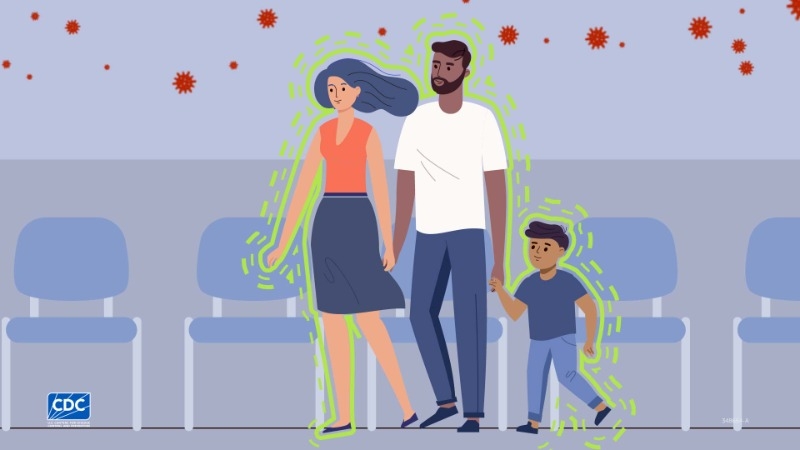Measles Cases on the Rise in the United States
April 28, 2025
Contact: Colleen Hupke, Executive Health Director, colleen@nnphd.ne.gov
Molly Herman, Epidemiology Manager, molly@nnphd.ne.gov
Expanding Measles Outbreaks Highlight Need for Immunization and Awareness in Northeast Nebraska
Northeast Nebraska Public Health Department is responding to the expanding number of measles outbreaks across the country. Per CDC, as of April 17, 2025, a total of 800 confirmed measles cases were reported by 25 jurisdictions: Alaska, Arkansas, California, Colorado, Florida, Georgia, Hawaii, Indiana, Kansas, Kentucky, Maryland, Michigan, Minnesota, New Jersey, New Mexico, New York City, New York State, Ohio, Oklahoma, Pennsylvania, Rhode Island, Tennessee, Texas, Vermont, and Washington.
Two children under the age of ten are confirmed to have died from measles so far in 2025. These children were not vaccinated against measles, and were previously healthy. Another death is currently under investigation.
Because of the highly contagious and possible severity of measles, every community should remain informed and prepared. NNPHD is actively monitoring the situation and urging all residents to review their immunization status and take proactive measures to protect themselves and their families.
What Is Measles?
Measles is a highly contagious viral illness that primarily affects the respiratory system. The disease is characterized by a range of symptoms that typically appear 7 to 14 days after exposure to the virus.
Initial symptoms include:
- High Fever: Often one of the first signs, with temperatures that can spike rapidly.
- Cough: A persistent, dry cough is common.
- Runny Nose: Nasal congestion and a runny nose frequently accompany other symptoms.
- Red, Watery Eyes (Conjunctivitis): The eyes may become sensitive to light and appear red.
- Rash: A red, blotchy rash usually develops on the face and then spreads downward to cover the rest of the body.
In some cases, small white spots known as Koplik spots may appear inside the mouth before the rash develops. Due to its contagious nature, measles can lead to serious complications, particularly in young children and individuals with weakened immune systems.
Recommended Vaccination Schedule
To ensure protection against measles, the following immunization schedule is recommended:•
- First Dose: Administered at 12 to 15 months of age
- Second Dose: Administered at 4 to 6 years of age
Children as young as six months can get a dose of MMR vaccine if they are traveling somewhere with known measles transmission or if they live in a community experiencing an outbreak. Please consult with your child’s healthcare provider for more information.
For adolescents and adults without documented evidence of immunity, a catch-up vaccination is advised. Staying current with the measles, mumps, and rubella (MMR) vaccine is the most effective way to prevent measles and its potentially serious complications.
People who received a measles vaccine in the 1960s may need a dose of the MMR vaccine. This is because some measles vaccines given in the 1960s were not as effective as the current vaccine.
Call your local vaccine provider or NNPHD at 402-375-2200 for questions regarding immunizations.
Protecting Your Family
Residents are encouraged to:
- Verify Vaccination Status: Review personal and family immunization records.
- Call Ahead to Seek Medical Advice: Consult healthcare providers if exposure to measles is suspected or if symptoms such as high fever, cough, runny nose, and rash occur. Please call ahead before a visit to any healthcare provider so that infection control measures can be put in place.
- Stay Informed: Follow updates from NNPHD for any further notices or changes to public health recommendations.
Background on the Situation
Recent reports from across the United States indicate a growing number of confirmed measles cases, mostly in people who are not vaccinated. This underscores the need for continuous attention to vaccination efforts. Health officials are managing the situation carefully, and this notice serves as a reminder of the importance of staying current with immunizations.
NNPHD remains committed to closely monitoring the situation and providing timely public health information to ensure the well-being of the communities we serve.
#NNPHDMeasles
For the most up to date information on measles cases in the United States, please visit this CDC website.





 Launch the media gallery 1 player - media #1
Launch the media gallery 1 player - media #1